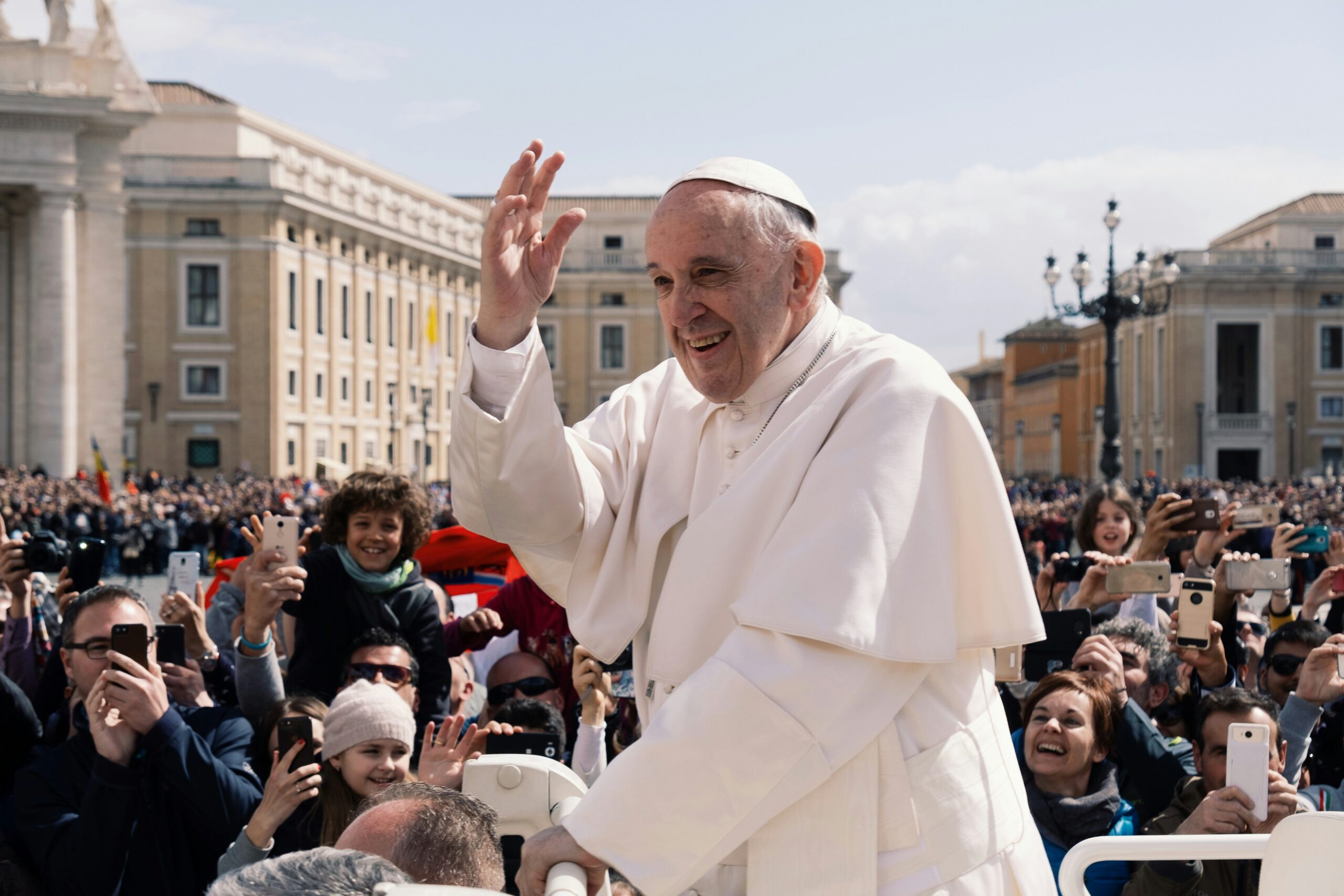Photo: Ashwin Vaswani/Unsplash
Mennonite World Conference joins Catholics and other faith communities across the world in mourning the loss of Pope Francis, who died on 21 April 2025, at the age of 88. He had been recovering at his residence Domus Sanctae Marthae after hospitalization for bilateral pneumonia.
“With gratitude, we remember the life of Pope Francis,” says César García, MWC general secretary.
“We reflect on how, through his life and teachings, he highlighted important issues for our Anabaptist communion: the imitation of Christ in his approach to power; his understanding of leadership as service; his commitment to peace; his focus on marginalized individuals, the poor, and immigrants; his concern for church unity as demonstrated in his relationships with other Christian communions and the practice of synodality; his respect for different faiths; and his care for God’s creation. These efforts, among others, endeared him to many of our brothers and sisters throughout his years of ministry.”
The first Argentine pope in the history of the church was born Jorge Mario Bergoglio in Buenos Aires, Argentina, in 1936. He was trained as a chemical technician, then joined the Jesuit novitiate in 1958. He was ordained a priest in 1969, was consecrated bishop in 1992, archbishop in 1998 and was named a cardinal in 2001. He was elected to the papacy in 2013 when he became the first pope to take the name Francis.
The legacy of Pope Francis is marked by “firsts.” He was the first Jesuit to become a pope and the first person from the Global South. He was the first pope to travel to the Arabian Peninsula, where he cosigned a declaration on human fraternity and living together with the Grand Imam of Al-Ahar Ahmad Al-Tayyeb.
Over the course of his papacy, he followed his namesake who was associated with poverty, simplicity and the renunciation of power. One example was his refusal to live in the Apostolic Palace (the usual residence of popes), choosing to live in an apartment in Domus Sanctae Marthae guesthouse instead.
Pope Francis was an advocate for refugees, for the poor, and for peace, speaking out strongly against war in numerous conflicts. He released the first papal encyclical on the environment, called “Laudato Si” and a subsequent apostolic exhortation, “Laudate Deum.” He appealed for everyone to “cooperate as instruments of God for the care of creation, each according to his or her own culture, experience, involvements and talents.”
In October 2024, the Vatican invited a representative of MWC to attend the 16th Ordinary General Assembly of the Synod as a fraternal delegate. The synod, which the pope oversaw, focused on synodality, a word for the parts of the church coming together as the body of Christ.
“Pope Francis worked to ensure that the Catholic Church became a church that reaches out to the margins, is not self-centred and shows deep concern for minorities (Evangelii Gaudium, 2013). He was determined to involve all the baptized in the decision-making and work of the church. He sought to reflect on synodality with Christians from other churches,” says Anne-Cathy Graber, MWC secretary for ecumenical relations. “His intentional choices of simplicity over ceremony signified a new, different way of being pope, a new way of approaching governance.”
